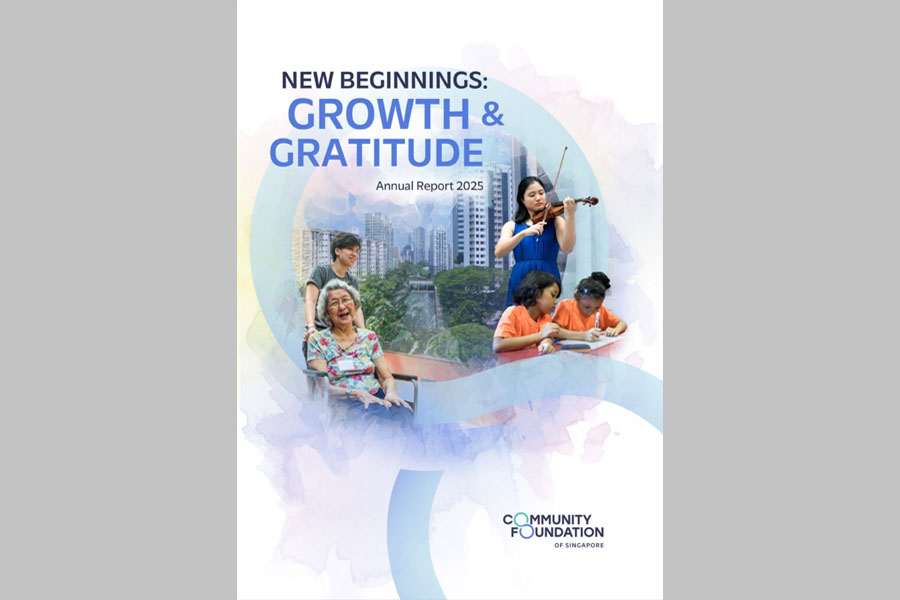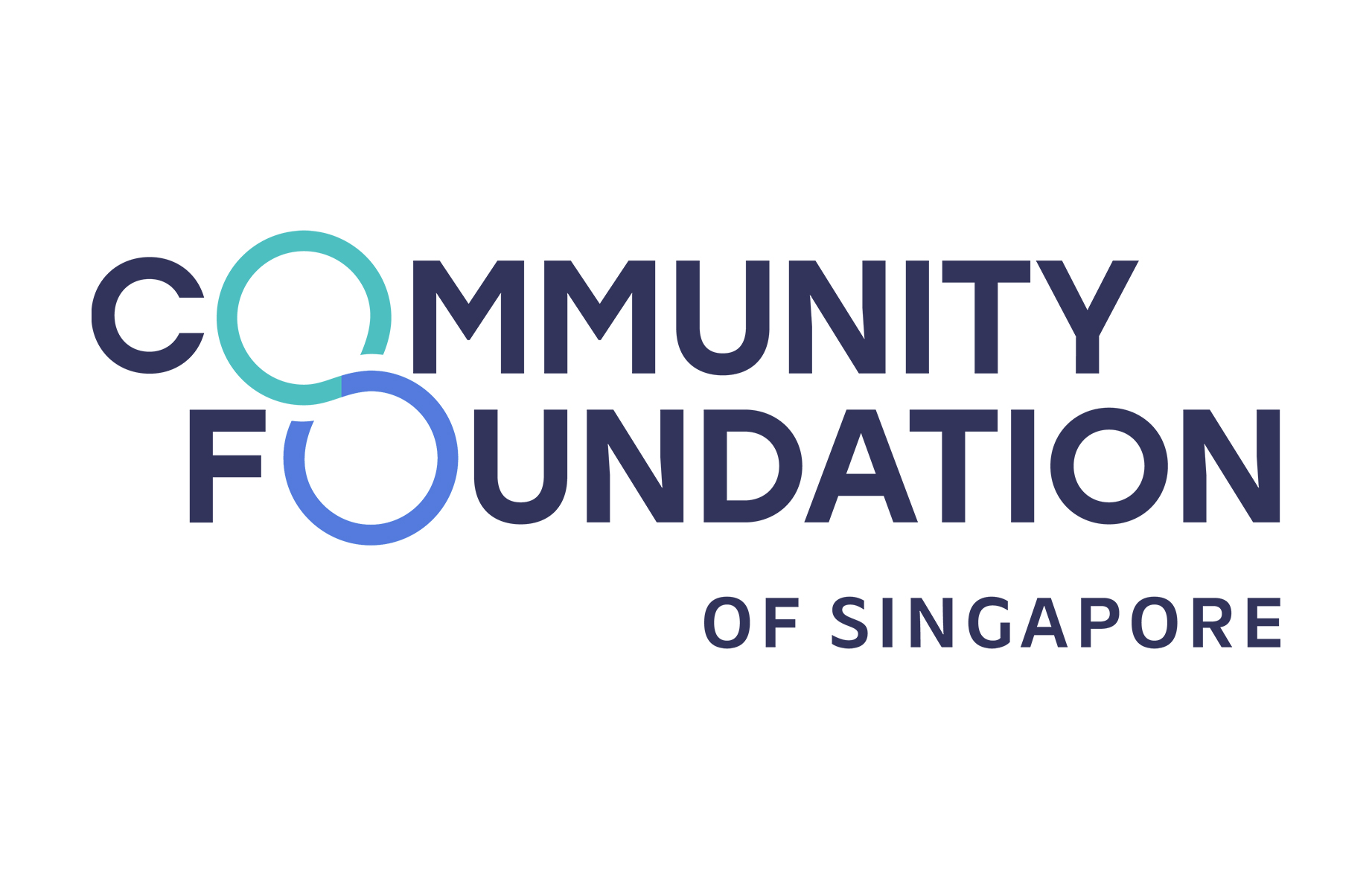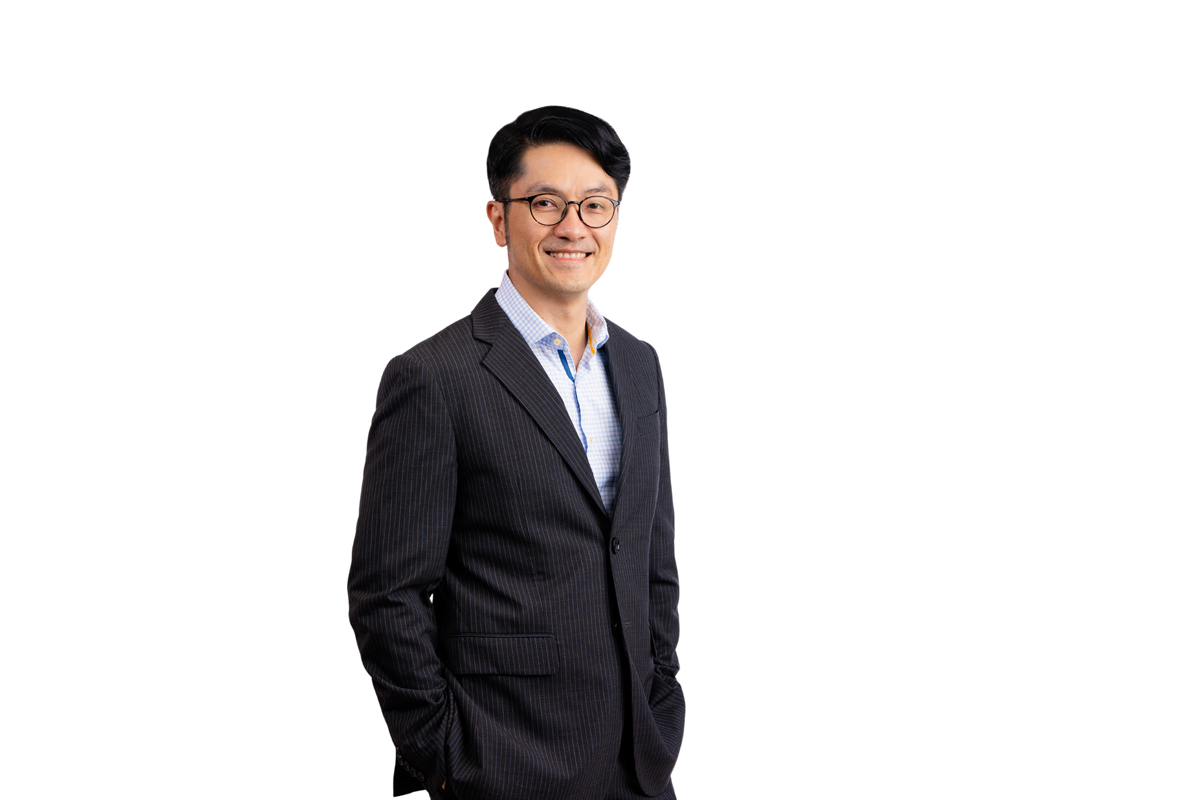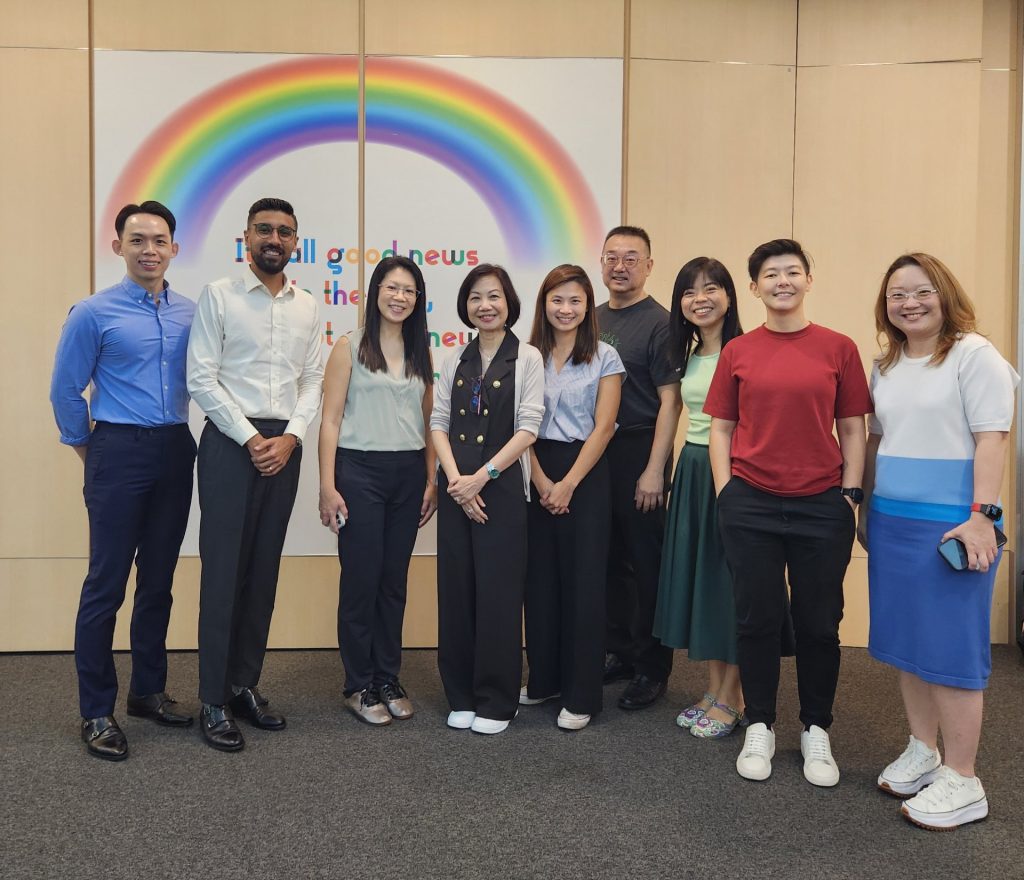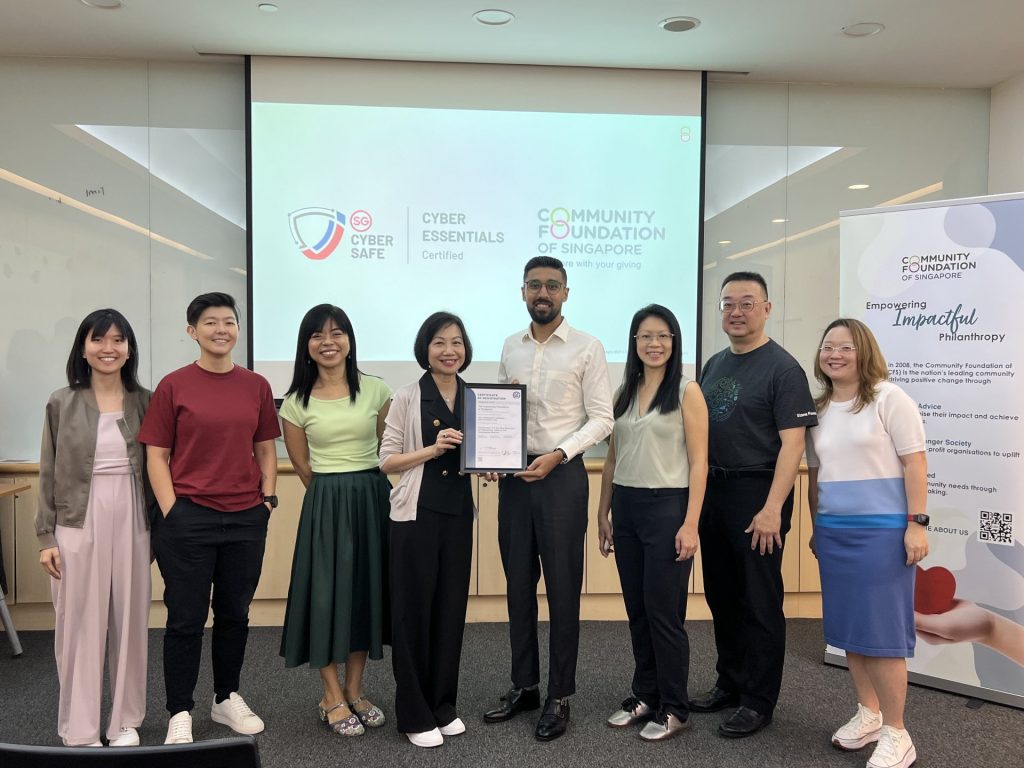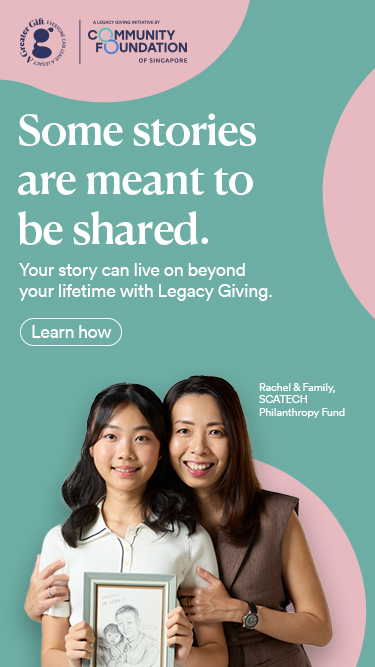Secure And Impactful Philanthropy: CFS Clinches Cyber Essentials Mark

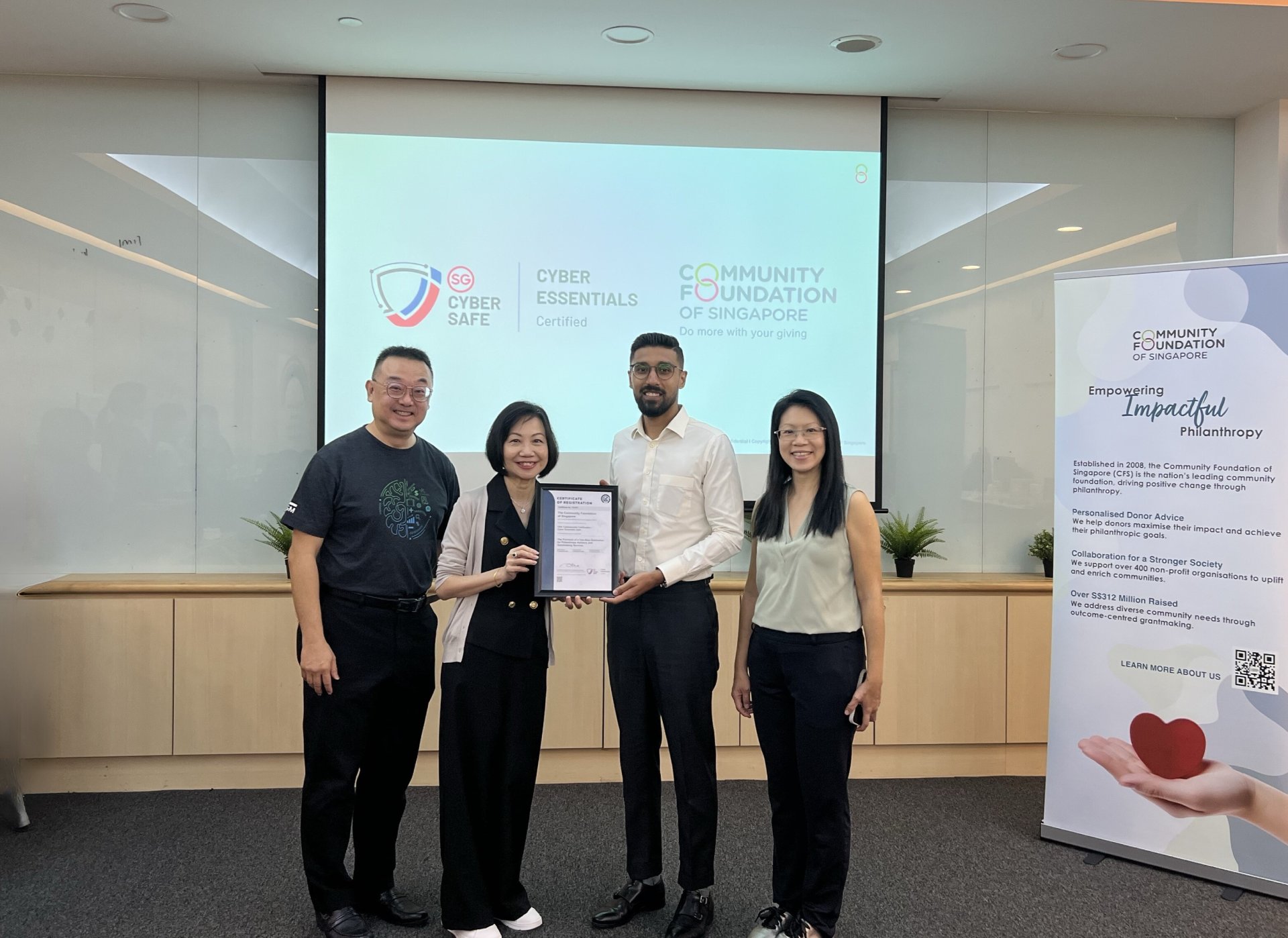
We are proud to announce that CFS has been awarded the Cyber Essentials Mark, a cybersecurity certification by the Cyber Security Agency of Singapore. This recognition highlights our commitment to operational excellence and data security, essential for protecting donor information and other sensitive data.
The Cyber Essentials Mark acknowledges organisations with robust cyber hygiene practices, safeguarding systems against cyber-attacks. Other notable recipients of the Cyber Essentials Mark are SISTIC Singapore, M1 and Capella Hotel.

At CFS, trust and transparency are at the core of everything we do. Achieving the certification reflects our dedication to maintaining the highest standards of data security, to provide peace of mind to our donors and partners.
Protecting donor and partner information is crucial to our mission of secure philanthropy. Trust is essential in our relationships with donors, charities, and partners, and we are delighted to receive this award.
Ms Tan Pei Cheng, Head of Technology and Transformation at CFS
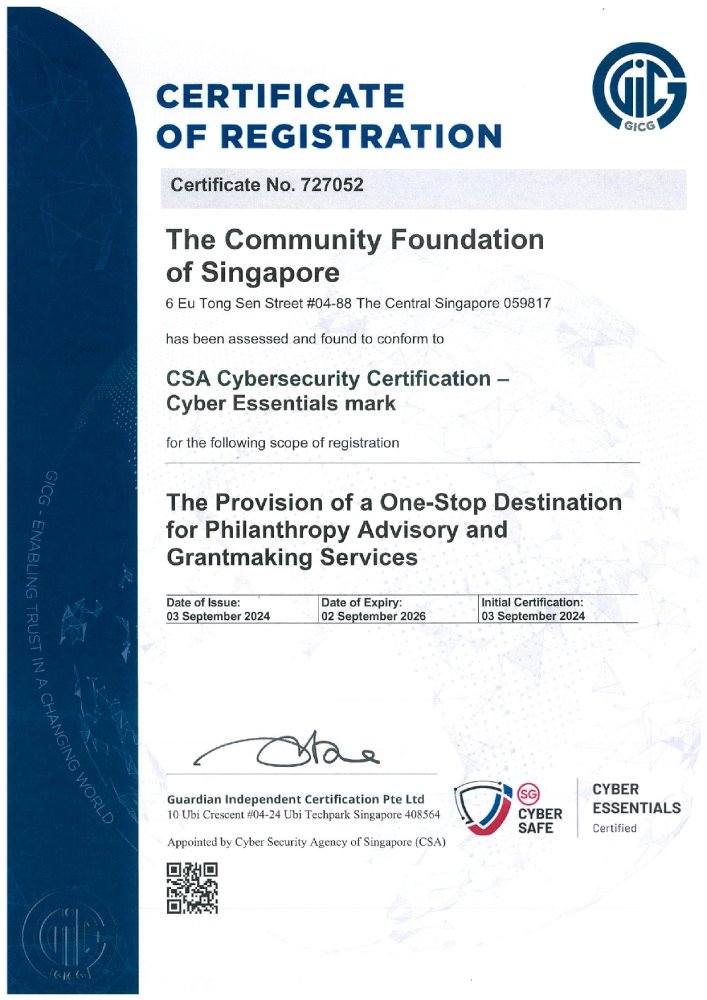
We are proud to announce that CFS has been awarded the Cyber Essentials Mark, a cybersecurity certification by the Cyber Security Agency of Singapore. This recognition highlights our commitment to operational excellence and data security, essential for protecting donor information and other sensitive data.
The Cyber Essentials Mark acknowledges organisations with robust cyber hygiene practices, safeguarding systems against cyber-attacks. Other notable recipients of the Cyber Essentials Mark are SISTIC Singapore, M1 and Capella Hotel.

At CFS, trust and transparency are at the core of everything we do. Achieving the certification reflects our dedication to maintaining the highest standards of data security, to provide peace of mind to our donors and partners.
Protecting donor and partner information is crucial to our mission of secure philanthropy. Trust is essential in our relationships with donors, charities, and partners, and we are delighted to receive this award.
Ms Tan Pei Cheng, Head of Technology and Transformation at CFS

- Related Topics For You: AWARDS, DONOR STORIES, NEWS, PARTNERSHIP STORIES
